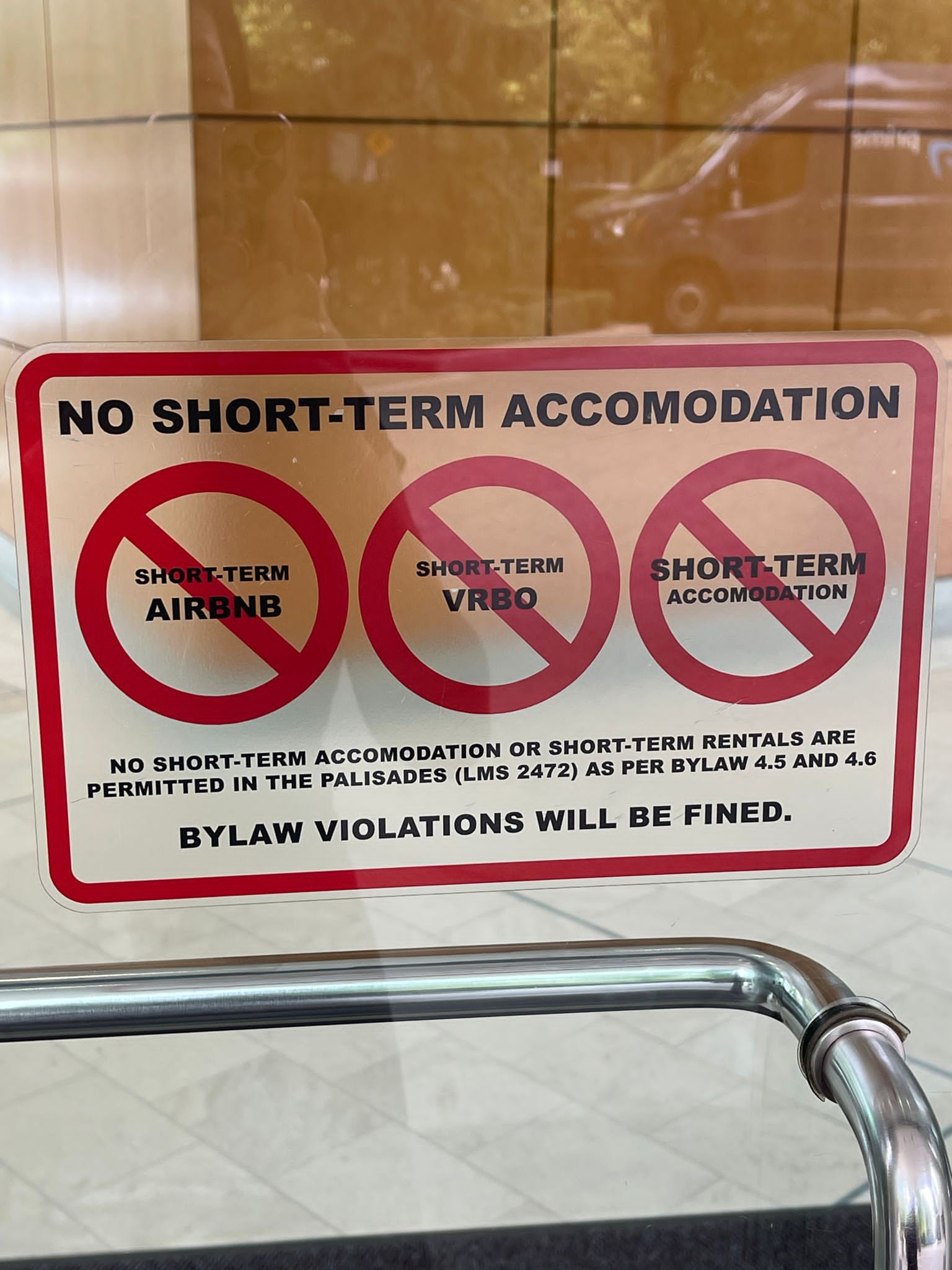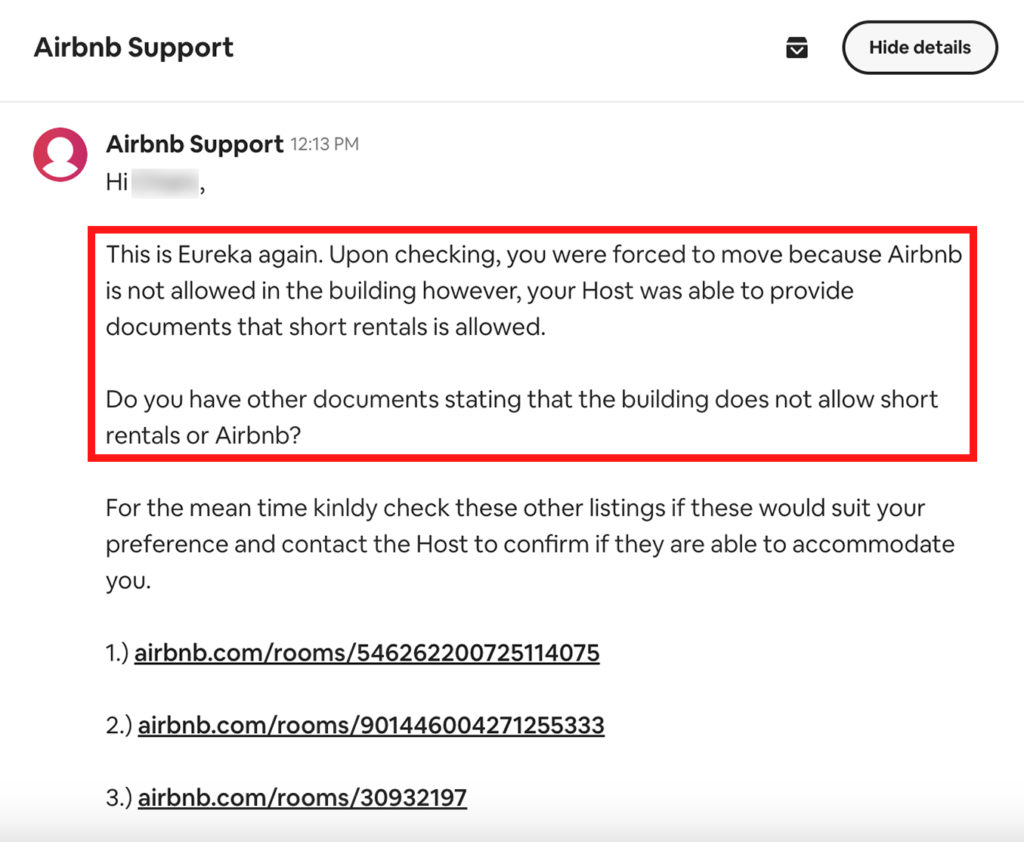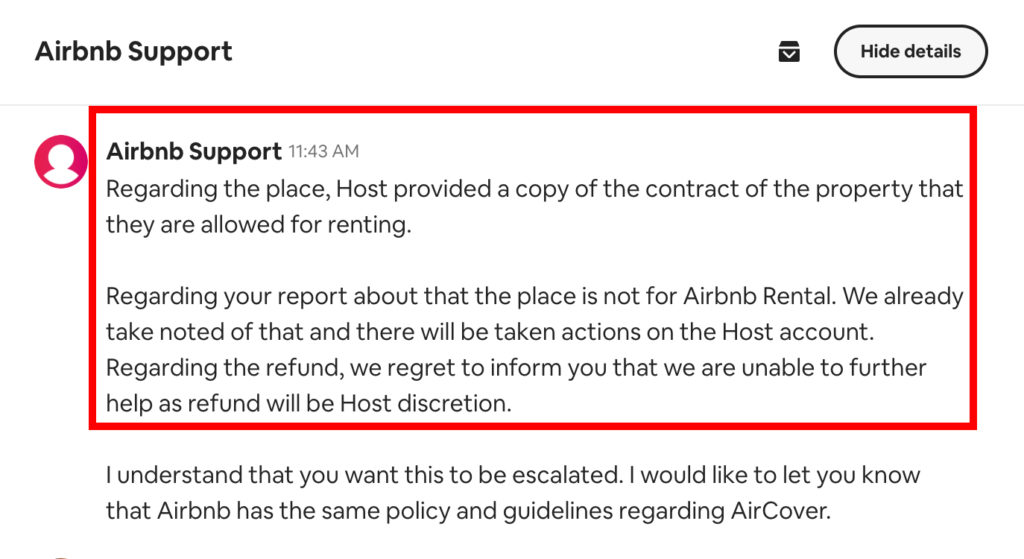Airbnb let fraudster scam guests for months, refused to refund victims

By Lisa Tanh
Airbnb allowed a fraudulent host to run a scam short term accommodation operation for months in Vancouver despite multiple guest complaints while refusing to refund the victims, an investigation by ThinkPol has found.
Since January, a host under the alias “Liam” had been using a stock photo tagged under “senior businessman” to pretend to be the owner of an apartment inside the Palisades. The building does not permit short-term rentals, yet Airbnb gave “Liam” an exemption from requiring a business license and allowed him to list a nearby Waves Coffee House as the address.
“Liam” further falsified information about the apartment through the listing description. He described the apartment as a luxury, three-bedroom that could accommodate 12 people. But in reviews hidden from the listing page, guests revealed it was dated, dirty, moldy, smelled like urine, and only a two-bedroom that could legally accommodate four people.
Guests also revealed that “Liam” would not provide check-in details until the last minute. At that point, a driver would instruct guests to meet at a public location. The driver refused to tell guests where the apartment was until they got inside his vehicle. Guests were then snuck into the Palisades through the underground parking and given duplicated key fobs.
“Liam” threatened guests to keep quiet about renting through Airbnb and to not stand around the lobby with their luggage.
One guest who filed a complaint spoke with ThinkPol and provided a detailed account of their experience—which showed Airbnb being slow to respond and continuously siding with “Liam.”
Recently, the guest stayed in the apartment with their family—a total of five adults, two small children, and an infant. During their second day, they discovered their key fobs were no longer working. They tried to contact “Liam” but did not receive a response, so they went to the concierge. The concierge informed the guest that the key fobs were fake and showed them what the real ones looked like. The concierge also noted he doesn’t know anyone called “Liam.”
The guest pleaded with the concierge to let them get back to the floor to retrieve their belongings. The concierge did not offer to help until the guest mentioned they had small children and an infant with them. He noted he could let them back up, but there’s no other way they could come back.
While the guest began packing, they contacted Airbnb’s support team to inform them of the situation and request a refund. An employee told them they could not help and that their case would be passed onto a specialized team. An hour later, Airbnb’s specialized team called the guest and told them they would contact “Liam” and conduct an investigation. Another hour later, Airbnb claimed that “Liam” had proof that the building allows short-term rentals.
Meanwhile, “Liam” said the key fobs may have been demagnetized and asked to meet at a nearby JJ Bean for a new pair. Twenty minutes later, a man knocked on the door. He claimed he was “Liam’s” employee and asked to verify if the fobs were not working.
Ten minutes later, the man returned and said the key fobs were working again. The guests believe the employee was actually “Liam” and that they reprogrammed or replaced the key fobs to encourage them to stay. The guests left the apartment that evening and found new accommodations.
The next day, Airbnb assigned the case to another employee who repeated that Liam had proof that the building allows short-term rentals. When the guest shared a photo of a door sign and linked the strata bylaws stating otherwise, Airbnb assigned the case to another employee for the third time.

Two days later, Airbnb finally reached back out to the guest. They declined to offer a refund and insisted again that Liam had proof that the building allows short-term rentals. When the guests responded that they were disappointed and asked why the listing was exempt from having a business number, Airbnb ignored their question and said they would reassess the case.

The next day, Airbnb assigned the case to another employee for the fourth time. It took another day for them to get back to the guest to inform them that their decision was final and that action would be taken against the host. “Liam’s” account and listings remained active until ThinkPol conducted an investigation.
During our investigation, we confirmed the apartment’s owner isn’t named “Liam” and discovered more hidden reviews corroborating past guests’ experiences. ThinkPol found Airbnb makes it challenging for users to find all reviews on a listing. They would have to click on the host’s photo to access their profile page and then click on the “See all reviews” button.
ThinkPol contacted Airbnb to ask how they plan to take action against fraudulent hosts like “Liam” and equip users to make more informed bookings, such as showing all reviews on a listing page. ThinkPol also asked how they intend to work with local governments, train staff, and develop technology to properly verify host identity and listing information, prevent scams, and protect customers when they need immediate support.
Senior communications manager, Matt McNama, said they were investigating “Liam’s” case but did not respond to questions.
Four days later, ThinkPol discovered that Airbnb removed “Liam’s” listings. Yet a quick search showed that a duplicate listing was created by a host under the alias “William.” “William” had other listings that we found were in buildings that do not permit short-term rentals for less than 30 days. The listings were exempt from requiring a business license despite users being able to book less than the minimum required. After ThinkPol shared the listings with McNama, they were removed as well.
ThinkPol also contacted the city to ask if they’re working with Airbnb to identify why listings in buildings that do not permit short-term rentals are exempted from requiring a business license. ThinkPol also asked how they plan to prevent Airbnb from accepting listings with fake or invalid business licenses and noted it’s an issue that’s been ongoing for several years.
Chief licence officer, Sarah Hicks, responded, “The city is aware that not all listings are compliant with bylaws” and that they have “a number of tools to identify non-compliant listings and routinely escalates enforcement as necessary.”
Hicks added: “Using a number of sources including, Host Compliance, which captures screenscrape data from multiple listing platforms, and the data provided through the MOU with Airbnb, the team investigates all unlicensed activity and ensures that licensed operators are following all regulations. Enforcement includes audits, warning letters, tickets, licence orders, inspections, and licence suspensions.”
In an email to ThinkPol, councilor Lenny Zhou highlighted that “the presence of illegal short-term rentals is absolutely unacceptable.”
On Twitter, Zhou shared more about the city’s upcoming plans to address short-term rental issues: “By Sept, city will introduce advanced analytical tools to elevate our enforcement capabilities & facilitate more effective communication with STR operators. I look forward to the rollout. In addition, we’ve reached out to the provincial government for their help & we’re also seeking support from STR platforms to timely remove non-compliant listings upon city’s requests.”



